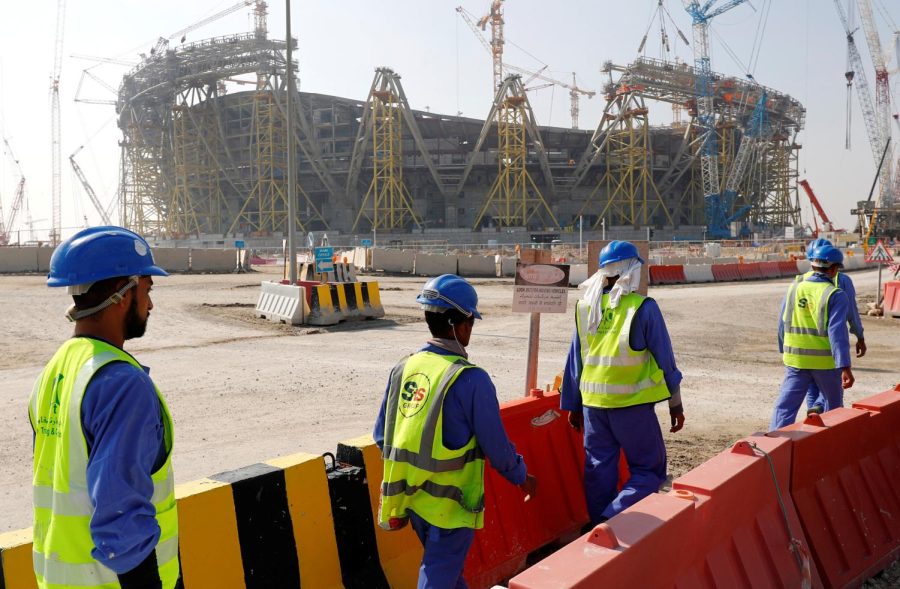Qatari companies abuse World Cup workers
Qatari workers at work on Lusail Stadium
Beginning November 20th, tens of thousands of soccer fans from all over the world flocked to Qatar to witness 32 teams compete to win the 2022 World Cup. Billions of non-traveling spectators watched the broadcasts of games played in some of the most modern stadiums in the world. However, the broadcasts failed to depict the exploitative labor system involved in the construction of these stadiums.
Qatar, an oil-rich nation stationed on the Arabian peninsula, gained the right to hold the 2022 World Cup in 2010 under questionable circumstances. The World Cup can bring a country hundreds of millions of dollars in tourism, so dozens of nations compete to host the competition. After Qatar won the right to host, multiple sources came forward alleging that Qatar bribed high-ranking FIFA officials to secure their victory.
Even though concerns surrounding the issue have generally subsided, Qatari companies have utilized problematic labor systems relating to the World Cup. To support such a massive event, Qatar needed to build multiple new stadiums to house the expected crowds. Seven of the eight stadiums in use for the competition finished construction within the past four years.
Construction companies have largely relied on poor, foreign laborers to complete the large projects. These companies have exploited the desperation of these workers in many cruel forms. When these migrant workers–most of whom come from Bangladesh, India, Nepal, and the Philippines–arrive, they are forced to pay hundreds of dollars in fees. After achieving employment, Qatari businesses use a system known as “kafala”. Under this system, bosses force workers to relinquish their passports and their right to move freely in Qatar. Employers then stop these individuals from switching jobs, trapping them in a cycle of abuse.
In addition to these unfair policies, laborers also receive low and infrequent wages. In many cases, workers have gone weeks without receiving the wages promised to them. These groups have often tried to form strikes to combat abusive business practices, but individuals involved in these efforts are often threatened or deported. Many others can’t involve themselves in such efforts because losing employment simply isn’t an option.
Migrant workers are also subject to dangerous and cruel working conditions. Laborers are confined to live in small, cramped camps adjacent to the stadiums. The extreme heat during summers in Qatar has also led dozens of workers to die of exhaustion, heat stroke, or other related illnesses. In 2021 alone, the International Labor Organization reported that 50 foreign laborers working on World Cup projects died, while hundreds more were seriously injured. Actual numbers may be even higher if Qatari companies have concealed statistics to avoid controversy.
Though Qatar’s government seems to be implementing worker reforms, these efforts have largely come too late. Thousands of exploited workers have already experienced horrible living conditions and injuries, and hundreds have died.
Continuing its long history of cartoonish greed, FIFA has done nothing in response to the conditions in Qatar. Time and time again, FIFA has damaged people’s lives to protect its bottom line. FIFA must be forced to take accountability for its inaction and role in this system. It must serve as an organization to promote the passion for soccer, rather than one based on corruption and callousness. Otherwise, thousands of people will continue to be abused by FIFA’s decisions.


